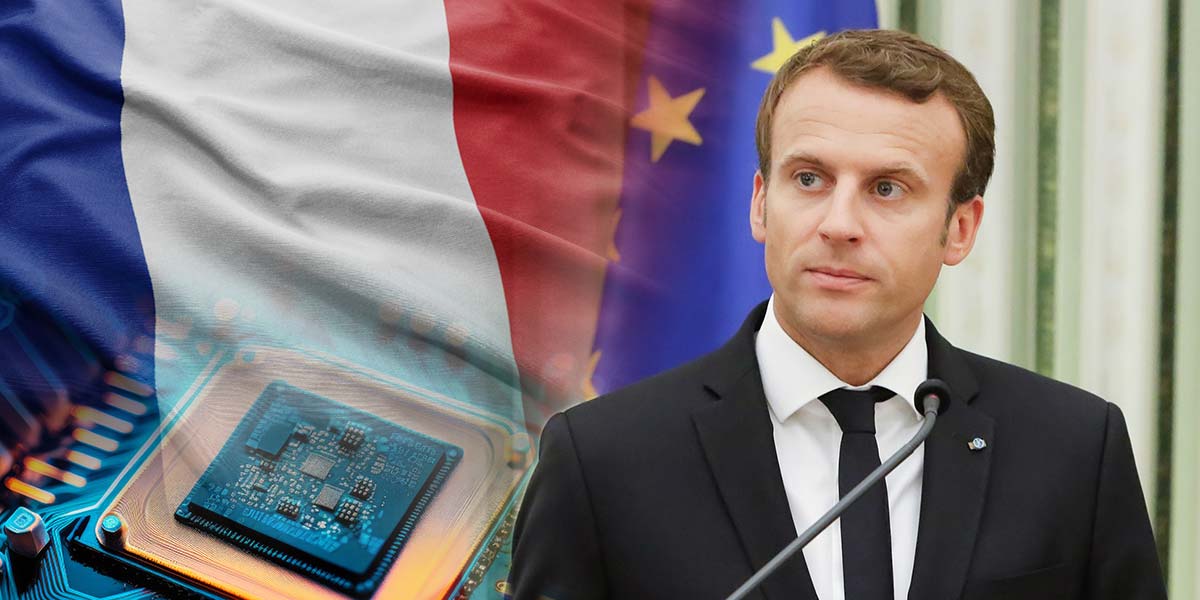French President Emmanuel Macron declared on Wednesday his ambition for France to become a leader in manufacturing some of the world’s most advanced semiconductors, positioning the nation at the center of Europe’s strategic technology push.
Speaking at the VivaTech conference in Paris, Macron said France must be able to produce chips in the 2-10 nm range—a technological benchmark currently dominated by Asian giants such as Taiwan Semiconductor Manufacturing Co. (TSMC) and Samsung.
The drive to bring cutting-edge chip fabrication to France comes as European governments and tech companies reconsider their heavy dependence on foreign suppliers for critical technology and infrastructure.
Macron’s call was underscored by the presence of Nvidia CEO Jensen Huang, who shared a stage with Macron and Mistral AI CEO Arthur Mensch.
Huang noted that Nvidia’s first graphics processing unit was produced in France by SGS Thomson Microelectronics—now STMicroelectronics—though the company is no longer at the leading edge of the sector.
Currently, only a handful of firms globally can mass-produce chips at 3nm or below—technology integral to the world’s most powerful computing devices, from the latest iPhones to advanced AI servers.
The President acknowledged that reaching these manufacturing milestones may require drawing global industry leaders like TSMC or Samsung to invest in local production, following the U.S. example, where TSMC has committed billions to new plants.
Macron highlighted ongoing negotiations to bring semiconductor assembly and testing facilities to France, pointing to a tie-up between Thales, Radiall, and Foxconn. He stressed that developing this capability is key to consolidating the nation’s technological and industrial sovereignty.
The push for advanced chips aligns with France’s broader efforts to boost its artificial intelligence sector. On the same day, Nvidia and French AI startup Mistral announced a landmark partnership to develop an “AI cloud” infrastructure in Europe.
Macron called the deal a “game-changer” for France’s AI ecosystem, building on his earlier announcement of EUR 109 billion ($125.6 billion) in private investment pledged for the country’s AI sector over the coming years.




